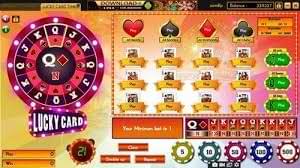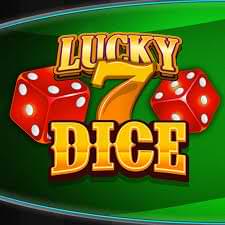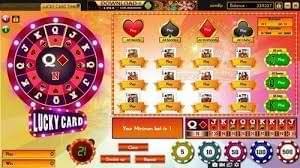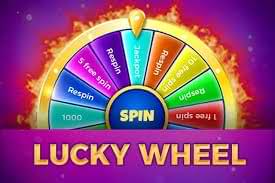
Lucky: App Rating 5/5
Win Rate : 98.9%


Table of Contents
Lucky Games History
Lucky games, as the name suggests, are games where the outcome is heavily influenced by chance or randomization. Unlike purely skill-based games where success depends solely on a player’s abilities and decisions, lucky games introduce an element of uncertainty and randomness that adds excitement and unpredictability to the gameplay experience. These games can range from simple dice rolls and card draws to complex digital simulations and interactive experiences, each designed to engage players in unique ways and challenge their perceptions of luck and strategy.
Historical Foundations: From Ancient Lucky Games to Modern Digital Platforms
Lucky games, as the name suggests, are games where the outcome is heavily influenced by chance or randomization. Unlike purely skill-based games where success depends solely on a player’s abilities and decisions, lucky games introduce an element of uncertainty and randomness that adds excitement and unpredictability to the gameplay experience.
- Modern Games and Dynamic Scattering
- Open-World Games: In modern open-world games, such as the Grand Theft Auto series or The Legend of Zelda: Breath of the Wild, scattered collectibles, missions, and encounters encourage exploration and discovery.
- Battle Royale Games: Games like Fortnite or Player Unknown’s Battlegrounds (PUBG) feature scattered loot and item spawns across a shrinking play area, forcing players into encounters and strategic decisions based on the scattered resources available.
Lucky games, as the name suggests, are games where the outcome is heavily influenced by chance or randomization. Unlike purely skill-based games where success depends solely on a player’s abilities and decisions, lucky games introduce an element of uncertainty and randomness that adds excitement and unpredictability to the gameplay experience.

Types and Mechanics of Lucky Games
1. Dice and Randomized Mechanics
Dice games form the cornerstone of many lucky games, where players roll dice to determine movement, combat outcomes, or resource acquisition. Games like Monopoly and Yahtzee utilize dice rolls to introduce chance-based elements that shape gameplay strategies and player interactions.
2. Card Games and Probability
Card games leverage the randomness of shuffled decks to create varied and unpredictable gameplay experiences. Games such as Solitaire, Bridge, and Magic: The Gathering challenge players to strategize and adapt to changing card draws, balancing luck with skillful decision-making.
3. Lottery and Gambling Games
Lottery games and gambling simulations epitomize the thrill of chance and fortune, offering players opportunities to win prizes or rewards based on randomized outcomes. Games like slot machines, roulette, and scratch cards rely on luck-based mechanics to determine payouts and winnings, appealing to players’ desires for risk and reward.
4. Digital and Mobile Games
In the digital era, lucky games have proliferated across online platforms and mobile devices, reaching a global audience of players seeking casual entertainment or competitive challenges. Mobile games like Candy Crush Saga and Coin Master integrate luck-based mechanics such as random item drops and treasure chests to incentivize gameplay progression and engagement.

Psychology of Luck and Player Engagement
1. Cognitive Biases and Superstitions
The psychology of luck in gaming reveals intriguing insights into human behavior and decision-making. Players may exhibit cognitive biases, such as the Gambler’s Fallacy or the Hot Hand Fallacy, which influence their beliefs about luck and probability.
2. Dopamine and Reward Pathways
The thrill of uncertainty and potential reward in lucky games triggers the release of dopamine in the brain, contributing to heightened arousal and pleasure during gameplay.
Impact and Cultural Significance
1. Social and Community Dynamics
Lucky games foster social interactions and community bonding among players who share a common interest in chance-based entertainment. Online forums, social media groups, and multiplayer platforms provide avenues for players to discuss strategies, share experiences, and celebrate or commiserate over fortunate or unlucky outcomes.
2. Economic and Industry Influence
The global popularity of lucky games has significant economic implications for the gaming industry, contributing to revenue generation through microtransactions, in-game purchases, and virtual economies.

Ethical Considerations and Regulation
1. Responsible Gaming Practices
As lucky games continue to evolve and expand, concerns arise regarding the ethical implications of gambling-like mechanics, particularly in games accessible to younger audiences.
2. Legal Frameworks and Compliance
The legal landscape surrounding lucky games varies globally, with jurisdictions implementing regulations to address gambling elements, loot boxes, and virtual currencies in gaming.
Payment Methods – Banking Options & E-Wallets
Here are the key details on withdrawals:
| Method | Minimum | Maximum | Processing Time | Fee |
|---|---|---|---|---|
| E-wallet | ₱100 | ₱50,000 | 1-3 Hours | None |
| Online Banking | ₱500 | ₱100,000 | 1-3 Business Days | ₱100 fee per transfer |
| Bank Transfer | ₱1,000 | ₱250,000 | 3-5 Business Days | 1% fee on amount |
Login
| Step | Action |
|---|---|
| 1. Visit | Go to the Lucky Games website or app |
| 2. Enter | Input your username and password |
| 3. Secure | Use two-factor authentication |
| 4. Access | Enter into the gaming world |
Future Trends and Innovations
1. Artificial Intelligence and Personalization
Advancements in artificial intelligence (AI) are poised to enhance the sophistication and personalization of luck-based mechanics in gaming. AI algorithms can analyze player behaviors, preferences, and performance data to dynamically adjust difficulty levels, rewards, and randomized outcomes, optimizing player engagement and retention.
2. Augmented Reality (AR) and Virtual Reality (VR)
The integration of AR and VR technologies opens new possibilities for immersive, interactive, and spatially augmented lucky gaming experiences. AR games could blend real-world environments with virtual elements of chance, while VR simulations offer realistic simulations of casino games and gambling scenarios.
3. Blockchain and Decentralized Gaming
Blockchain technology introduces decentralized platforms and digital assets that could revolutionize the transparency and fairness of luck-based gaming. Smart contracts and cryptographic protocols enable provably fair randomization, secure transactions, and player-driven economies in online games, fostering trust and accountability in gaming ecosystems.

Conclusion: Embracing Chance and Strategy in Gaming
To sum up, games of chance play a vibrant and varied role in the worldwide scene, providing individuals of various ages and backgrounds with an engaging mix of luck, skill, and fun. Spanning from traditional dice games to modern digital recreations, the progression of games of chance mirrors humanity’s enduring interest in luck, fate, and the uncertain aspects of gaming encounters.
You May Also Want:
- Jili777win Exclusive Offer: Get P7,777 + ₱300 Bonus Now!
- Megabets: No.1 Best Sports & Casino Betting Platform.
- WOW888: Top-Quality Online Casino Gaming | DownLoad Now!
- PH222 Casino Login Register is the First Step to Big Wins
- PH222 | Limited Offer P7,777 Free + 100% Bonus! Play Now.
- Panaloka7777: The Ultimate Guide to Big Wins! Play Now
Leave a Reply